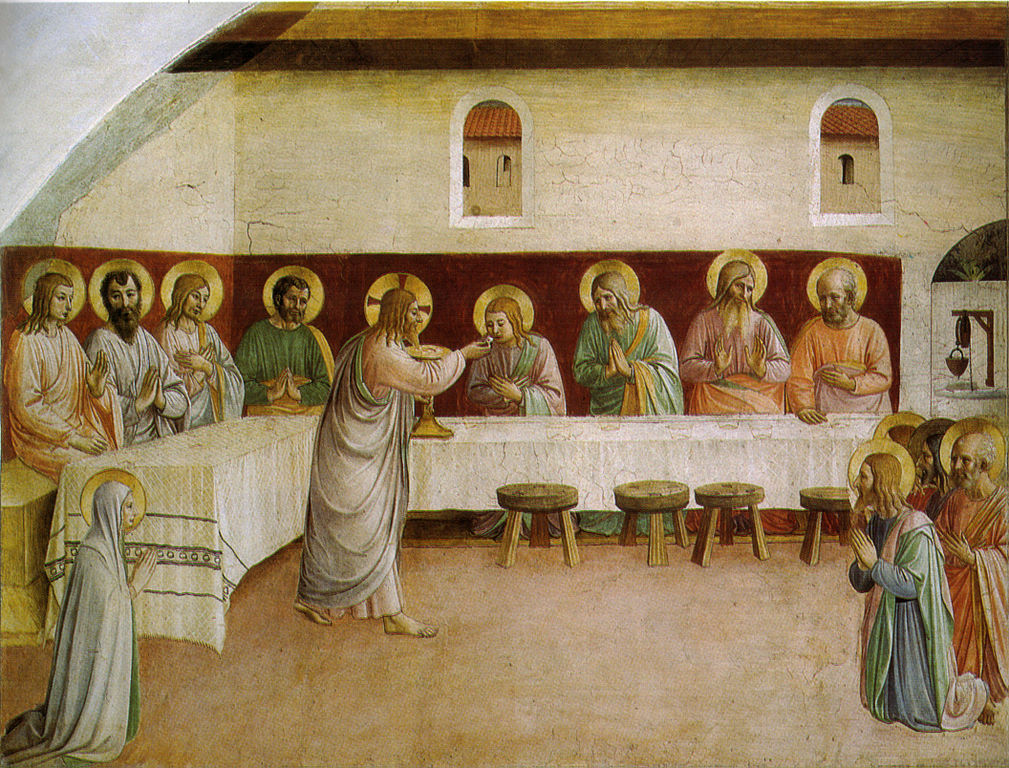
THEME: THE REAL PRESENCE OF JESUS CHRIST
READINGS: Deut. 8:2-3, 14-16/ 1 Cor. 10:16-17/ John 6:51-58
Solemnity of Corpus Christi
INTRODUCTION
On every Holy Thursday, we celebrate the institution of the Holy Eucharist (Lord’s Supper). However, the mood of the commemoration of our Lord’s suffering and death during the Holy Week seems to take away our attention from reflecting sufficiently on the body and blood of Jesus Christ. So, the feast of the Corpus Christi affords us a good opportunity to meditate more on the Holy Eucharist. In this homily, let us focus on the aspect of the REAL PRESENCE OF JESUS CHRIST in the Holy Eucharist.
In the Holy Eucharist, the bread becomes truly the body of Christ and the wine the blood of Christ. However, we have so often received Holy Communion that for some of us familiarity is breeding contempt for the body and blood of Christ. We are not different from some of the Jews in the days of Jesus. They were so familiar with Jesus that many of them did not believe him when he said that he had come down from heaven. They retorted: do we not know his father, Joseph the carpenter, and the mother as well; how can he claim he has come down from heaven? (John 6:35-42). Similarly, some of us have become so familiar with the Holy Communion that we sometimes doubt that it is truly the body and blood of Christ.
John 6 tells us that the day after the multiplication of loaves to feed the 5,000 men, Jesus told the crowd that they should look not for the food that perishes but for that which gives eternal life. Then when the people requested for this bread of life, Jesus told them that he is the bread of life that has come down from heaven. They then started grumbling. But Jesus’ further statements were to shock the people the more: ‘If anyone eats this bread, he will live forever. The bread that I will give him is my flesh, which I give so that the world may live. This started an angry argument among them. “How can this man give us his flesh to eat?” they asked. Jesus said to them, “I am telling you the truth if you do not eat the flesh of the Son of Man and drink his blood, you will not have life in yourselves.… For my flesh is real food and blood is real drink”’ (John 6:51-55). Consequently many of his followers left him.
Now if Jesus did not mean what he was saying (that he will give us his flesh and blood), or if he was using a mere figure of speech, he would have called the deserting followers back to clarify his teaching. Rather, he turned to the twelve apostles and asked them if they also wished to leave him. Peter, then, responded: ‘Lord, to whom would we go? You have the words that give eternal life. And now we believe and know that you are the Holy One who has come from God’ (John 6:68-69).
However, it was not until the Last Supper that Jesus gave us the sacrament of his body and blood. At the Last Supper, Jesus did not say: ‘Take and eat, this is LIKE my body’; neither did he say: ‘…this REPRESENTS my body’; nor did he say: ‘…this is a SYMBOL of my body.’ He simply said: ‘…this IS my body.’ Likewise, with the cup of wine, he did not use the words LIKE/REPRESENTS/SYMBOL; rather, he simply said: ‘This IS my blood ….’ We, therefore, believe that in the Eucharist, the bread becomes the true body of Christ and the wine the true blood of Christ.
Let me illustrate the above point with something which happened two years ago during the Arab Spring in Libya. Four members of the International Criminal Court (ICC) were detained there for illegally possessing, among other things, a camera in the form of a pen and a recorder in the form of a wrist watch. Would they have been detained for possessing an ordinary pen and a wrist watch? No! They were detained because they possessed a camera (though in the form of pen) and a recorder (though in the form of a wrist watch). Similarly, in the Eucharist, though the form is bread it is truly the body of Christ; though the form is wine, it is truly the blood of Christ! That is why St. Paul asks those whose appreciation of the Eucharist is limited by the forms of bread and wine: ‘Is the bread we break not a communion in the body of Christ? Is the cup we drink not a communion in the blood?’ (1 Cor. 10:16). Subsequently, he states categorically: ‘It follows that if anyone eats the Lord’s bread or drinks from this cup in a way unworthy of him, he is guilty of sin against the Lord’s body and blood’ (1 Cor. 11:27). It is clear that St. Paul does not say the person sins against the blessed bread and blessed wine, nor simply against the bread and wine.
Furthermore, beloved, as a living person’s body and blood are not separated but they are together with his mind and soul, so in the Eucharist we have altogether the body, blood, soul and divinity of our living Lord Jesus Christ. This is what we call the Real Presence of Jesus Christ in the Eucharist. May the Lord give us the grace to always receive him in the Eucharist with the reverence worthy of him, amen! And, may he, whom we adore in the Eucharist, bless us more than we can ask for or imagine, amen!
By Very Rev. Fr. John Louis
